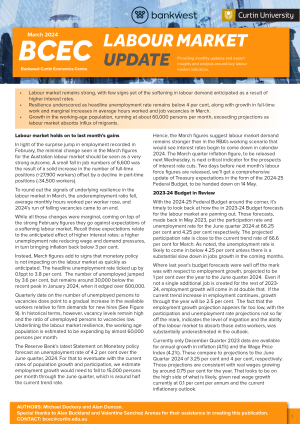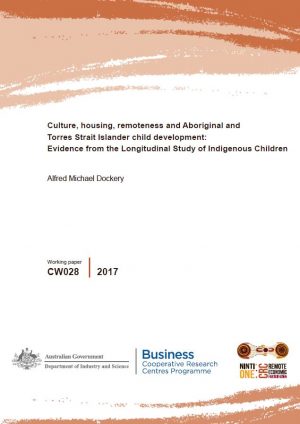Culture, housing, remoteness and Aboriginal and Torres Strait Islander child development.
The limited empirical evidence available in Australia points to beneficial effects of Aboriginal and Torres Strait Islander peoples’ identification with their culture across a range of outcome domains. Living in remote communities, with limited mainstream economic opportunity, services and infrastructure – notably inadequate housing – and the associated mobility that maintains connection to country and kinship networks have been highlighted as cultural aspects that contribute to lower outcomes for Aboriginal and Torres Strait Islander Australians, relative to other Australians, on many mainstream indicators of socioeconomic wellbeing. This paper uses data from Waves 1–7 of the Longitudinal Study of Indigenous Children (LSIC) to explore the interrelationships between families’ housing, culture and remoteness and their children’s outcomes across domains covering physical health, social and emotional wellbeing and cognitive development. Exploratory factor analysis of parents’ responses to questions on culture in Waves 1–4 of the LSIC identifies three key elements of parental attitudes and practices with respect to passing on Aboriginal and Torres Strait Islander culture to their child: Connection to Country, Connection to Kin and Traditional Knowledge. The Connection to Country and Kin factors are interpreted as reflecting parental aspirations to promote the child’s sense of Aboriginal and Torres Strait Islander identity. The paper addresses an important weakness in the existing empirical literature, since the research design eliminates the possibility of (the child’s) outcomes ‘causing’ greater cultural identity or engagement. Parents fostering a strong kinship connection is found to contribute to positive child development across the domains investigated. Desire to pass on traditional knowledge appears to be complementary to better cognitive outcomes, but it is correlated with lower school attendance. These findings support arguments that schooling in remote areas should be more culturally appropriate. Greater remoteness is associated with inferior aspects of housing, notably more crowding and a high incidence of government and community housing, but there is little evidence that this has a substantial impact on child outcomes. Parental education, having at least one parent in work and adequate family financial resources are found to be associated with positive child development.




